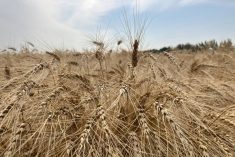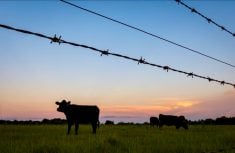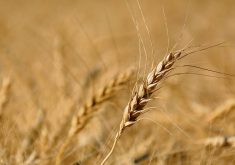The Western Livestock Price Insurance Program is not functioning properly due to very high premiums and needs to be quickly revamped, says the Canadian Cattlemen’s Association.
“We’re having unprecedented volatility for markets. Having tools in place for farmers and ranchers has never been more important,” executive vice-president Dennis Laycraft said during a telephone town hall Thursday.
Premiums for the insurance program, which used to cost $15-$20 per head, are now about $70, CCA officials said.
“Some of our risk management tools that we have historically used, such as price insurance, have become too expensive to use,” said Fawn Jackson, director of government and international relations. “High premiums have been caused by market volatility. We’re essentially seeing stalled participation in the program when it is really needed most.”
Read Also

U.S. grains: Soy futures post biggest monthly gain in nearly five years on China trade optimism
U.S. soybean futures climbed to a 15-month high and posted their biggest monthly gain in nearly five years on Friday following a rally fueled by the prospect of revived exports to China.
The CCA wants Ottawa to pay for part of the premium.
“We think that’s an example that can be adapted to COVID-19 times,” Jackson said. “Addressing these unaffordable premiums would balance the risk management uptake in the beef sector and get some confidence in the market, when large numbers of backgrounding cattle are coming to market this spring.”
Eastern Canada is still operating without a price insurance program and CCA would like to see one developed there quickly.
The association also wants a set-aside program for both Eastern and Western Canada, similar to one used during the BSE crisis, in case there is a major disruption such as a packing plant closure.
Such a program would match the number of cattle coming to market to processing capacity. Government would provide financial assistance for the cost of feeding cattle held back from the market.
The CCA also wants several changes to AgriStability, including removing the $3 million cap on payouts and removing reference margin limits.
Uncertainty in markets and short-term interruptions could last well into 2021, Laycraft said.
— Alexis Kienlen reports for Alberta Farmer from Edmonton.













